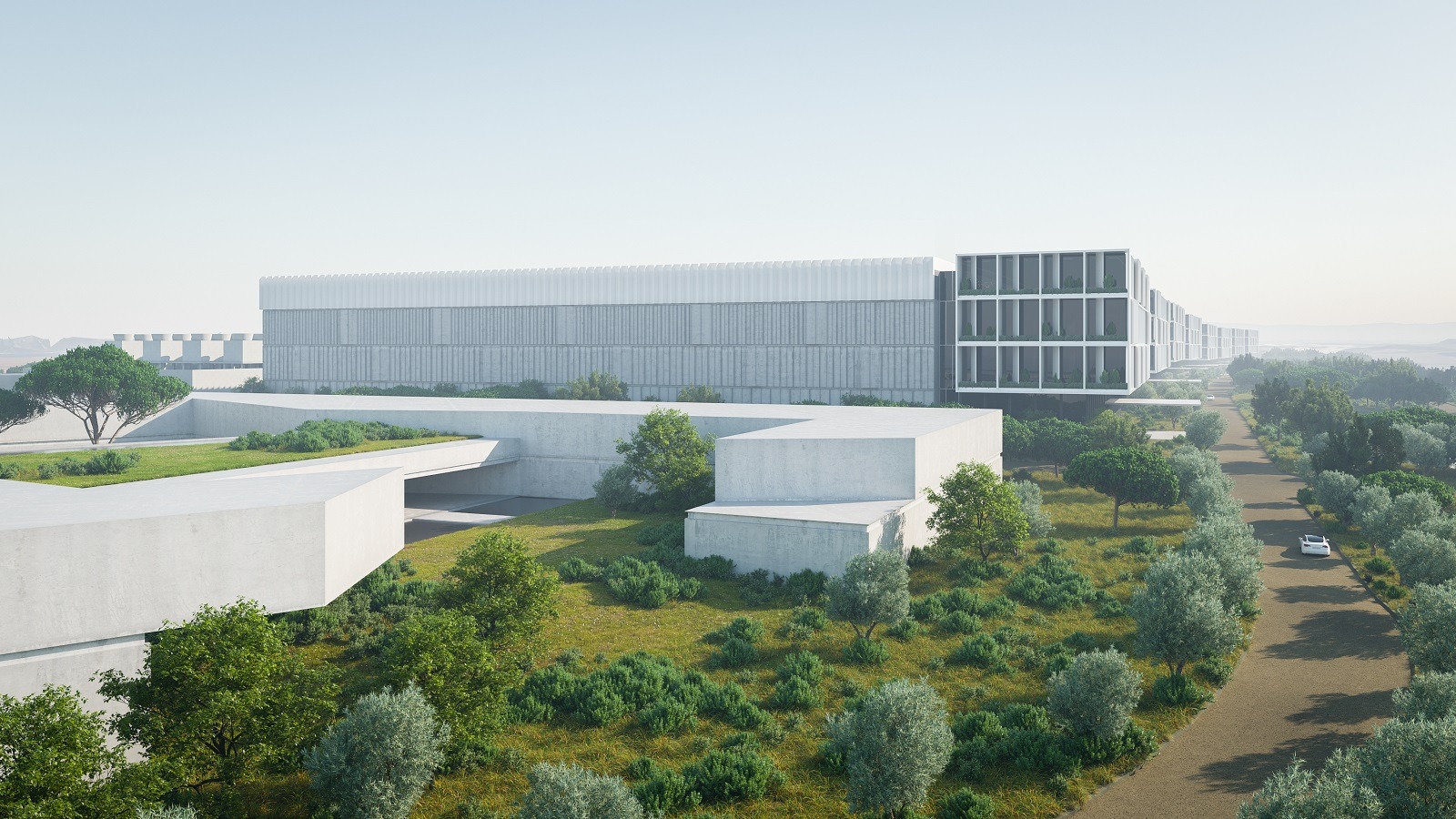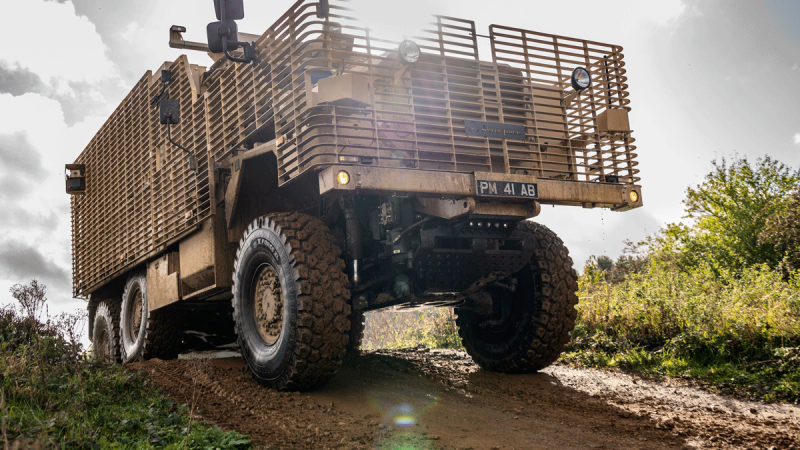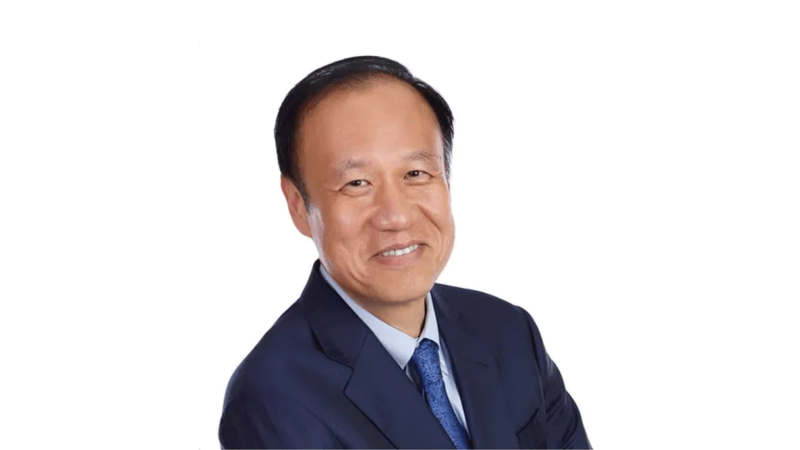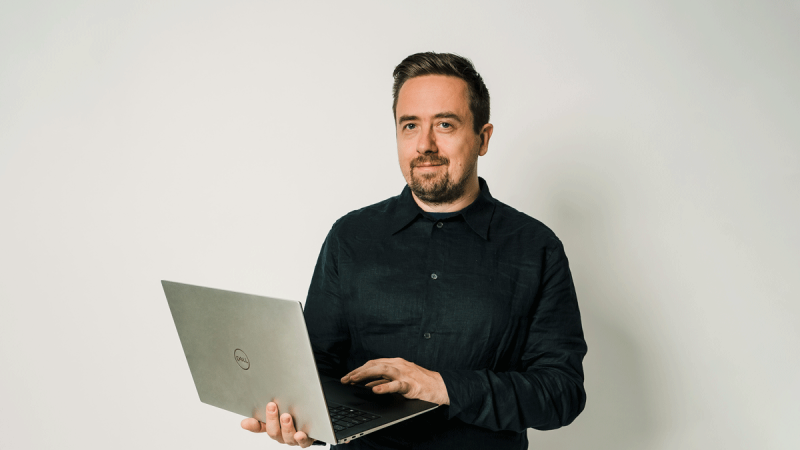The rapid pace of digital transformation is driving an ever-increasing amount of data creation, storage and use. This has resulted in increased demand for data centre capacity, a trend that is set to continue, driven specifically by ‘hyperscalers’, i.e. companies that dominate the public cloud and hybrid cloud services industries, such as Google, Facebook, and Amazon.
This trend, together with the ever-increasing focus on sustainability, were the two factors behind the birth of Start Campus, established in 2020. The company is now completing the first stage of SINES project, its ground-breaking project constructed on the Portuguese coast, an investment worth up to €3.5 billion.
Set in a premium strategic location, the perfect gateway to Europe and the world, SINES, a Hyperscaler Data Centre campus with a capacity of up to 495MW, will not only be one of Europe’s largest data centre campuses but one with a minimal environmental footprint. It will have created up to 1,200 highly skilled direct jobs and 8,000 indirect jobs when it is completed in 2028.
The background
How did it all start? “The project reflects the vision of our CEO Afonso Salema, an investment banker by background, who clearly saw the opportunities with digitisation and energy transition, 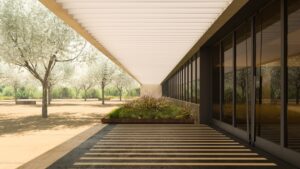 specifically for energy-intensive industries like data centres,” explains Ms Fabiola Bordino, the company’s Head of Sustainability, who herself was only the second employee of the new company to be recruited.
specifically for energy-intensive industries like data centres,” explains Ms Fabiola Bordino, the company’s Head of Sustainability, who herself was only the second employee of the new company to be recruited.
“As he saw old power stations being decommissioned, he realised that their mission-critical infrastructures, costly to build, could be used for new ventures in the digital world, the expansion of which rapidly accelerated during the global pandemic.”
After assessing more than 100 potential decommissioned power station sites in Europe, the SINES location was identified on the Portuguese coast some 150 km south of Lisbon. “Portugal was selected for a number of reasons,” says Fabiola.
“It is one of the most extraordinary locations in Europe with connectivity through high-capacity international fibre optic cables to three continents – North America, Africa, and South America.”
“Portugal is also the safest country in Europe and a full member of the EU since 1986. The country has the lowest security threat in the world, an abundance of technical talent, and is recording 30% growth in the software and IT services sector. With lots of sun and wind, it also has ideal conditions for renewable energy generation.”
Green data centres
Fabiola Bordino explains that Start Campus is an innovator in site selection, design, and building of 100% green energy ecosystems, and will offer 100% sustainable facilities for rent with a low total cost of ownership (TCO).
“Our goal is to be carbon-free by 2028. We are taking steps to achieve this goal through sustainability and cost efficiency. This is to be achieved through the repurposing of existing state-of-the-art ocean cooling facilities, as well as our own solar parks, backed by batteries and green PPAs, to optimize costs.”
She explains that historically in Europe, most data centre capacity was built in large business and technology centres (Frankfurt, London, Amsterdam, Paris and Dublin, the so-called FLAP-D locations). However, this approach is reaching its limits, mainly due to the physical limitations of the soil, cooling water and energy availability, which compete for resources intended for human use.
By locating facilities outside large metro regions, Start Campus is making a positive impact on net contributions by providing a new industry within local communities, complete with employment and new skills. As such, the company is set to deliver proof-of-concept confidence for the green, giant hub-and-spoke data ecosystem architecture of the future.
Local focus
With a power usage effectiveness of 1.1 (the best data centres in the Nordics achieve 1.2) and water usage effectiveness (i.e., freshwater usage) of 0, sustainability is at the top of the list. The very fact that the company will repurpose existing legacy infrastructure and waste-ocean water is unique.
Reforestation is also a priority, affirms Mr Bordino. The site will be populated with local plants needing little water, so the only water the site will use will be for human consumption. “We have a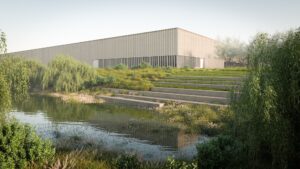 National Park at our doorsteps so being part of the landscape while mitigating all unfavourable impacts of the project, is very important to us.”
National Park at our doorsteps so being part of the landscape while mitigating all unfavourable impacts of the project, is very important to us.”
She further explains that the company has been working closely with local communities, a cooperation that started – unlike similar projects – long before the first excavator touched the ground.
“Communication was key – we talked to 23 different associations, companies and other people in the community to understand their agenda, plans and expectations and ask what this kind of exercise can ultimately bring them. In this respect, SINES will set an example for similar projects not only in Portugal but in a Europe-wide context.”
Engagement with the locals has also been promoted via a GAMMA Community Platform that Start Campus has set up, an investment tool to empower community members to be leaders in regional development by supporting local initiatives.
Setting a benchmark
Ms Bordino explains that the SINES project has been given the status of ‘project of national interest” by the Portuguese government, hence progress has been fast.
The first building on the campus with a total capacity of 15 MW, is expected to be completed in the last quarter of 2023. “There will be a total of six buildings on the 60-hectare campus. Construction of the second building is projected to start early next year, and then the rest will be rolled out. Every building is modular, with up to four floors and 120 MW each. It will be up to the client to decide on the capacity, knowing that the entire campus can go up to 495 MW.”
The company makes no secret of wanting to replicate the SINES ecosystem in other places and is already assessing several other locations in Europe. “We are establishing a new market and that is the biggest challenge at the moment. To explain to potential stakeholders the connectivity, the green sustainability, the reduced carbon footprint that is created in the construction sector and not tracked yet.”
“We can’t change the whole industry just yet; we are moving in baby steps but eventually with the right clients, the hyperscalers, enough pressure will be created to make changes to the benefit of the planet. Ultimately, this is the most important objective of what we are doing – not only connecting the world but striving to leave this planet in better shape for future generations.”
